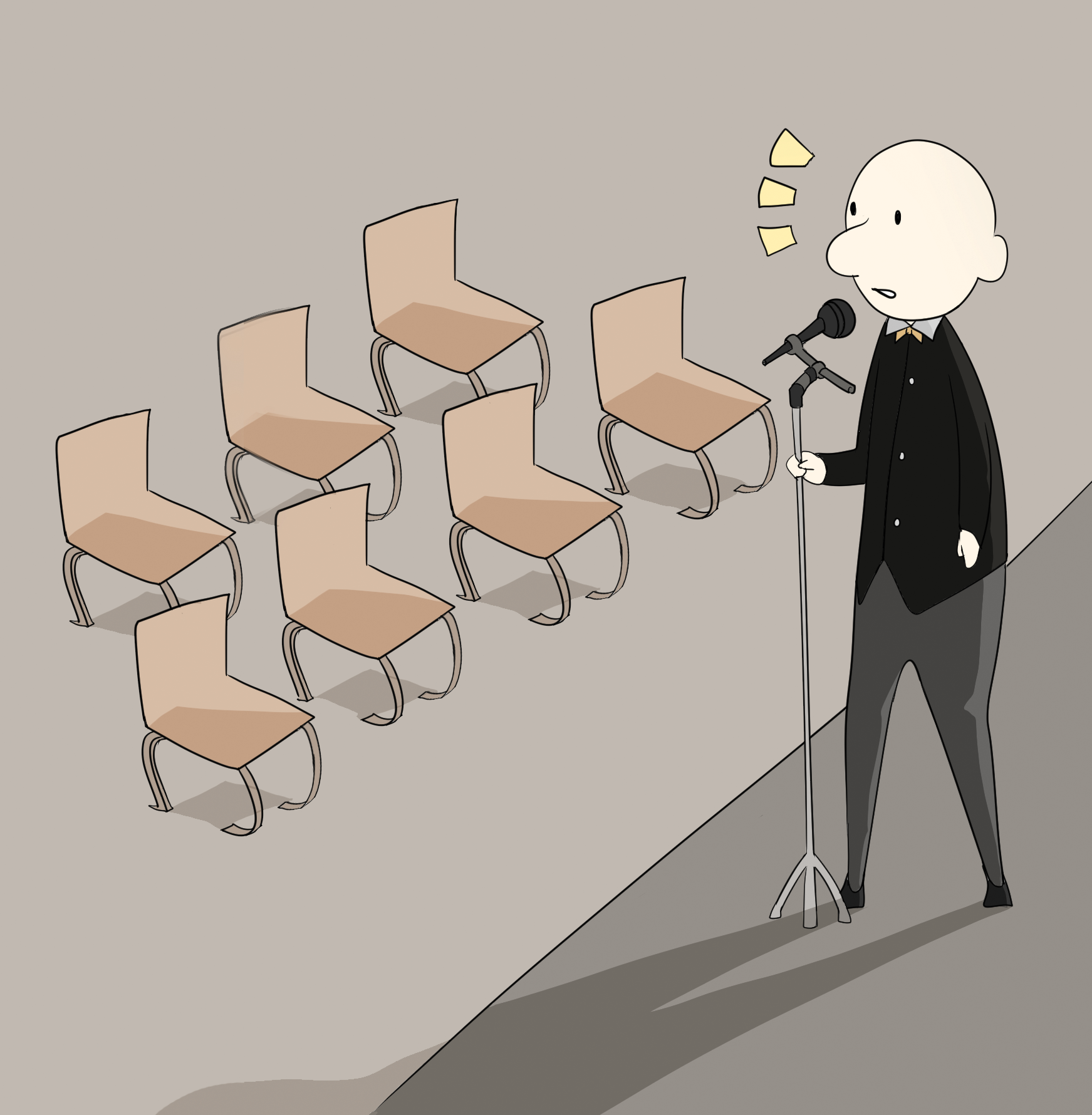[dropcap]T[/dropcap]he Connected slate thought they were in for summer lovin’ when they took over the Simon Fraser Student Society (SFSS) office space this past May. But soon, it turned out that their first semester in office would be one filled with summertime sadness, as president Deepak Sharma resigned less than six weeks into his year mandate.
This story was hot on the tails of the news that the Highland Pub would be closed all summer due to a deficit. Now cue the start of this Fall semester: athletes and students are told there will be no stadium built, despite the overwhelming approval of the project in the 2015 Annual General Meeting.
The SFSS Board of Directors have had no honeymoon period with the student populace, and with the byelection right around the corner, a lot of students are left asking themselves how we as a student body got here.
As long as I’ve been a student at SFU, I can recall some scandal involving the SFSS. From the alleged physical altercation between two elected members, to speculations that the Build SFU campaign was withholding information, to now running half their board meetings behind closed doors, the SFSS can’t stay out of trouble.
I — like a lot of SFU students, I assume — found all the scandals tiresome and disenfranchising. I just wanted the disputes to end and for someone to address my concerns with the U-Pass program, student fees, and resources available to me; but I found myself waiting for the SFSS president that never came. I have in recent semesters, however, come to believe this isn’t inherently the fault of the SFSS. Rather, the responsibility landed on me: the student and the voter.
I’ll admit it: I didn’t vote in the elections my first two years as a student here. The first year I voted, I did minimal research, and attended no debates. This, of course, didn’t stop me from being frustrated with my student government. I was part of the reason why subpar, underqualified, and uninspiring candidates were being elected to positions of power.
I’ll never be able to go back in time and vote for a president who doesn’t make a ridiculous Disney reference every other sentence, but I can try and encourage all of my fellow students to take an interest in the election, even if it is a byelection for a student president. Comparatively, the SFSS has been a passable student union. Below are some examples of what happens when students don’t get to know their candidates, and accidently elect sadness.
Mount Royal University (MRU)
In 2012, a former student union president robbed a bank shortly after resigning from her position. Meghan Darcy Melnyk reportedly walked into a local credit union in Calgary, and gave a note to a bank teller asking for an undisclosed amount of money, further suggesting she was in possession of a weapon. Melnyk was caught and processed, but left in her wake a shocked student population.
Kwantlen Polytechnic University (KPU)
When people think of 2005, they think frosted tips, flared jeans, and Gwen Stefani’s problematic hit, “Hollaback Girl.” Unless of course you were a KPU student at that time, in which case all you can think about is how you were allegedly robbed by the student society representing you. As The Ubyssey reported, the student union ended up suing five of its former executive members for allegedly mishandling millions of dollars in student fees.
It all started when Aaron Takhar was appointed the head of the student union. Soon after becoming chairperson, changes in bylaws came flooding in. In a Special General Meeting (SGM), the student association presented a 200-page document to be voted on. With special prize giveaways at the SGM, like tropical vacations, students probably didn’t much care what was on those 200 pages. Some of these changes, of course, were questionable in nature: during Takhar’s reign, executive directors saw a salary increase of 130 percent, democratically elected councillors lost their positions, and others had their mandate doubled.
After Takhar finished his rule as chairman, he did not rerun. The former councillors who were expelled after the SGM, however, found themselves back in office. They committed themselves to auditing the society’s recent activity. What the audit revealed was shocking. The Ubyssey reported “nearly $150,000 of student funds had been paid out without supporting documents. This included $67,000 paid to a consulting firm called AST Ventures, which Aaron Takhar later confirmed to Maclean’s that he was the sole director of upon incorporation.”
The audit also alleged election manipulation and missing financial documents, but these allegations have not yet been proven in court. Takhar moved forward by transferring to SFU in 2006.
University of Regina (U of R)
While serving as VP of finance on the University of Regina Students’ Union (URSU), Haanim Nur admitted that she misused funds at students’ expense. At that same time, Nur reportedly held a position with the Canadian Federation of Students (CFS), and neither association was keen to confirm that the stolen funds were theirs to claim. Nevertheless, Nur was was under investigation from the CFS for forging cheques that totalled $700.
During this investigation, however, Nur continued her candidacy for URSU president, and was triumphantly elected by the student population despite the ongoing investigation into the missing funds.

